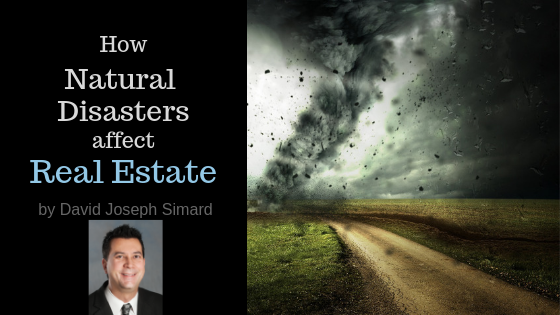Overall, real estate is generally considered to be one of the soundest investments you can make. While there are no foolproof investments, real estate tends to be one of the least volatile assets, carrying a range of long term income earning potential. While stocks, bonds and other investments may appreciate over time, and even offer modest dividends while they are maturing, real estate investments can pay for themselves in the form of rental income, while they continue to appreciate. By the time many investors sell real estate holdings, they have often paid themselves many times over.
Natural Disasters and Real Estate
One of the few elements that can have a significant impact on real estate investments are natural disasters. Natural disasters can have a ripple effect that can sometimes be felt on a global scale. A natural disaster in one area can create a sudden surge in surrounding markets. A previously depressed area can experience a sudden surge thanks to evacuees from a natural disaster area. While you might think that areas more prone to natural disasters would experience a decrease in home prices, you would be wrong.
In fact, median home prices have actually risen 65% in areas with the biggest risk of natural disaster in the last 5 years, while they have only risen 45% overall. It turns out that areas most prone to natural disasters, such as fires, blizzards, hurricanes and floods, are also some of the most beautiful (and therefore most desirable) places to live.
Conversely, however, natural disasters also have a tendency to seriously affect delinquency rates, which can also have a ripple impact on financial markets. The very reasoning behind the mortgage crisis in the early part of the 21st century was that real estate was considered such a rock solid investment that it was believed nothing could topple it. It turns out they were wrong, but not by much.
While real estate is not an infallible industry, it’s true that not much can shake it. Natural disasters are one thing that can, but even then, they don’t tend to be universally bad. A catastrophe in one area tends to lead to a boon in another, while the areas hardest hit also have the most incentive to recover because they continue to be highly attractive areas to live in.


